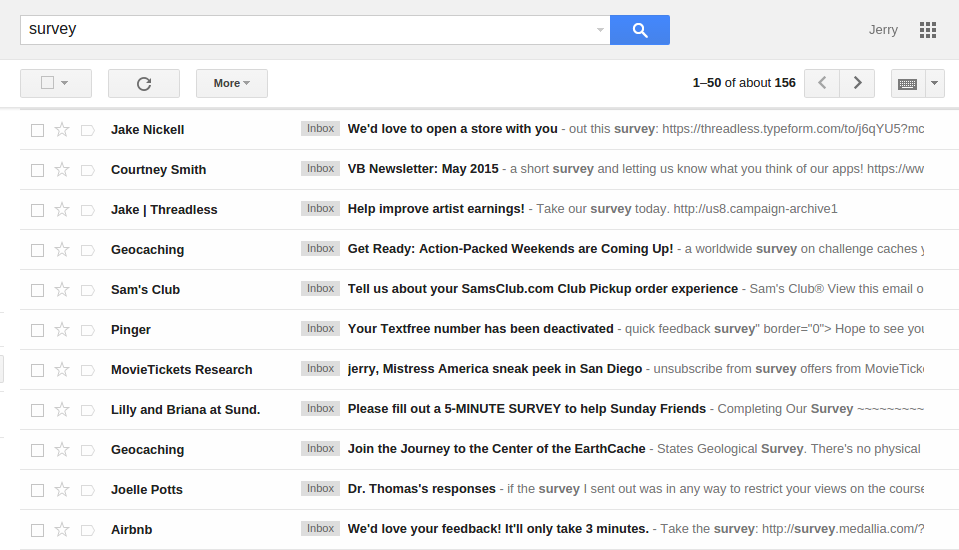Open Mind Night: On taking Feedbacks and Keeping an Open Mike
06.19.15
Last night I went to a meetup held at DBC Headquarters in San Francisco, and I had a chance to take a look around the DBC workspace. It was past 8 p.m. but there were still at least 20 on-site sudents there, hacking away at their keyboards, trying to complete their final Projects. "Have they been here all day?" I asked my guide. "Yep," he said,"and sometimes they pull all nighters." So that's going to be me in a few months, and it soon dawned on me that I'm going to be spending a lot of time with my cohort. Then another realization hit me: my time at DBC can be either very pleasant or very unbearable depending on my relationships with my cohort mates.
DBC emphasizes on Engineering Empathy from the get go. The program values good communication between people almost as much as technical know-how. This is reflected in its physical space. There are no cubicles, just rows and rows of computers in a wide open space. People often hang out on big comfy couches or piles of cushions on the floor. There is a yoga area, ping pong table, and even nap rooms equiped with beds and sheets. They provide free psychologists and plenty of fridge space to store your healthy home cooked meals. They really do their best to promote physical, emotional, and mental health. The whole setup is reminiscent of my visit to technical giants like facebook and google. This came as no suprise to me, afterall, DBC is founded here in San Francisco, a city at the forefront of just about every liberal movement and well known for its laid-back atmosphere and Bohemian lifestyle.

Parade is one of the biggest events in San Francisco
One of the greatest factors affecting our happiness is our relationship to those around us. Like it or not, we humans are hardwired to be pack animals, and we just don't function well when we feel like our tribe is against us. This is why it's important to cultivate our relationships with our cohort mates, and cultivate them early. Phase 0 of the program gives us that chance by allowing us to pair program with each other before we even meet in the physical world. It's a good strategy, because not only does it prepare us for what we will be doing every single day during the on-site program, it also gives us the opportunity to get to know the people whom we will be spending 12 hour days with. We can start seeing each other's learning styles, personalities, habits, and quirks. The feedback mechanism also allows us to know what we need to work on, we may learn things that are not apparent to us until somebody points them out. I'm not saying that we can change our bad habits as soon as they are pointed out, but at least, knowing what we need to fix allows us to start consciously taking steps toward fixing it. If a bad habit that negatively affect our pairing sessions are brought to our attention, we should be able to catch ourselves doing it in the future, and we can then choose how to correct our course.
We were instructed to give actionable, specific, and kind feedbacks. I certainly have not been taught exactly how to give feedbacks before DBC. But I think these feedbacks should be given constantly during pairing sessions so course corrections can happen immediately. This takes effort from both the feedback-giver and feedback-receiver. It's upto the feedback-giver to speak up and say exactly what's on their mind. I know this can be awkward, we were taught as children to be nice to each other and never hurt each other's feelings. But I think it wouldn't be awkward if the feedback-receiver treat the feedback as a gift rather than a personal attack. Most companies spend great resources gathering feedbacks for their products and services. Think about how many times you saw a survey in your email inbox and sent it directly to the trash. We normally don't care enough to leave a feedback for Sam's Sporting Goods about our shopping experience, even if they try to offer us a $5 coupon. It's simply not worth our time and effort to give the matter any thought. When someone bothers to give you a feedback, it means that they have used their precious attention span to evaluate your performance, identify weaknesses, and sometimes they even tell you exactly how you can do better (and they are not even asking for a coupon). So when someone offers you a feedback, accept it with humility, and use it as a precious tool for self-improvement.

Anyways, I'm glad DBC has all these implementations in place to boost emotional intelligence, even if some of this stuff may seem a bit hippy-dippy. You may even think all these "extra" practices are pretentious or "not you." But I think if we keep an open mind and give everything a try, we'll find that there are valuable ideas and practices in just about every culture and subculture. And speaking from personal experience, you might be suprised at how quickly you can accept and adapt to foreign circumstances. By opening yourself up and putting yourself through a variety of unfamiliar situations, you stand to gain a much firmer understanding of yourself and what is uniquely, you.

Why? Because it's Cambodia.